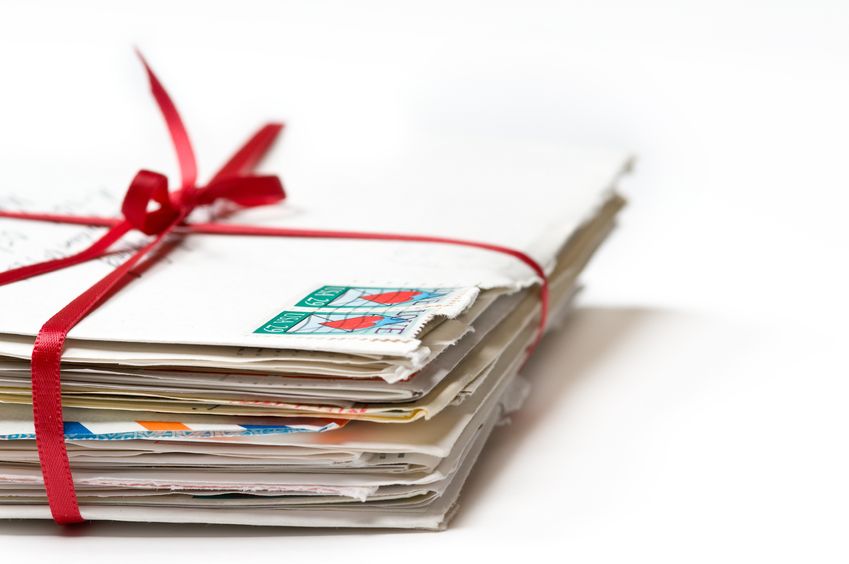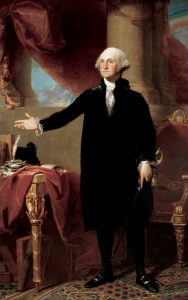This professional genealogist celebrates Fourth of July because the Declaration of Independence was signed in 1776. So what else about the holiday might be of interest to a genealogy services provider?
The personal descriptions of the time.
This RecordClick genealogist relishes finding personal papers because they can put a person in a specific place at a specific time. For the genealogy services provider, letters will tell a story that includes all sorts of people – some of them famous.
A good deal of what a genealogist knows about the Revolutionary War comes from letters written by George Washington. Over the course of his lifetime, Washington wrote so many letters, enough to fill several published volumes.
Let’s take a look at General George Washington of the Continental Army and his concerns 240 years ago.
First of all, here is a brief timeline for the Declaration of Independence:
- March 17, 1776: Siege of Boston. Washington and his forces won.
- June 1776: George Washington was in New York watching British forces massing for battle.
- July 4, 1776: The Continental Congress adopted the Declaration of Independence and it was sent to the printer.
- July 8, 1776: The Declaration of Independence was read publicly.
- August 27, 1776: Battle of Long Island/Battle of Brooklyn/Battle of Brooklyn Heights. Washington and his forces were defeated.
Next, what was General Washington doing? His correspondence was published in the mid-1850s and it tells the genealogist that the leader of the Continental Army was very busy. There was the issue of what to do with Gov. William Franklin – the illegitimate son of patriot Benjamin Franklin – and the anticipation of the British sailing into New York harbor.
Gov. William Franklin was the last colonial governor of New Jersey. He was also loyal to the British Crown. In late June of 1776 he was captured by the Continental Army. Washington wrote:
To the Captain of Governor Franklin’s Guard Head-Quarters, New York 30 June 1776
Sir, I understand that the Convention of New Jersey resolved, that Governor Franklin was an enemy to the liberties of America, and that he should be conducted under a safeguard into Connecticut, and for that purpose he was committed to your charge. I have this morning received information, that you have halted with him at Hackinsac (sic). I would enjoin it upon you to set off immediately, and carry the resolve of the Convention into execution…
On the same day Washington penned another letter:
To the Committee of Essex County, New Jersey New York, 30 June 1776
Gentlemen, I received your favor by Mr. Treat, and cannot but consider the officer of Mr. Franklin’s guard extremely blamable for his conduct. It is certainly his indispensable duty to conduct Mr. Franklin to the place the Convention have ordered, without delay. The circumstances you represent, his letter to his lady, and the whole complexion of the case, afford a strong presumption, nay, much more, full evidence, that he means to escape if possible…
In short, Gov. Franklin was a problem for the New Jersey colonists and the governing bodies felt the best way to resolve the situation was to arrest him and take him to Connecticut. The times being what they were, however, he had to be handled carefully, but he could not be allowed to escape.
Then there was the matter of the British:
To the President of Congress New York, 4 July 1776
Sir, I have this moment received a letter from General Greene… the intelligence it contains is of the most important nature… The expectation of the fleet under Admiral Howe is certainly the reason why the army come has not begun its hostile operations… It behooves us to be prepared in the best manner…
And then on July 9th:
To Major-General Ward New York, 9 July, 1776
Sir, The enclosed Declaration will show you, that Congress at length, impelled by necessity, have dissolved the connexion (sic) between the American Colonies and Great Britain, and declared them Free and Independent States… and in compliance with their order I am to request, that you will cause the Declaration to be immediately proclaimed at the head of the Continental regiments in the Massachusetts Bay…
Letters are wonderful things for the genealogist looking into family histories. Letters provide a sense of immediacy not found in many history books and they can help make sense of the roles that our ancestors may have played in an historical event. Many officials have had their correspondence published. Unpublished documents from presidential memos to soldiers’ letters home fill boxes upon boxes at the National Archives, and numerous libraries, archives, genealogical and historical societies. Knowing where to look can be a challenge.
But a professional genealogist can help with that.
When you hire a genealogist from RecordClick, the professional genealogy service providers have strategies that help your family history search.








